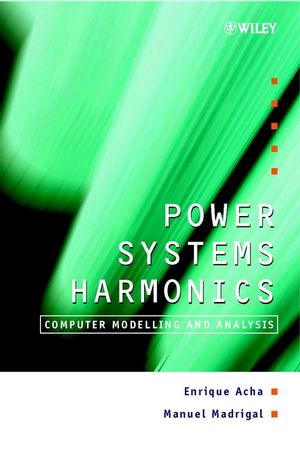Power Systems Harmonics: Computer Modelling and AnalysisISBN: 978-0-471-52175-4
Hardcover
382 pages
June 2001
 This is a Print-on-Demand title. It will be printed specifically to fill your order. Please allow an additional 10-15 days delivery time. The book is not returnable.
|
||||||
Deregulation has presented the electricity industry with many new
challenges in power system planning and operation. Power engineers
must understand the negative effect of harmonics on an electrical
power network resulting from the extensive use of power
electronics-based equipment. Serving as a complete reference to
harmonics modelling, simulation and analysis, this book lays the
foundations for optimising quality of power supply in the planning,
design and operation phases.
Features Include:
* MATLAB function codes to aid the development of harmonic software and provide a hands-on approach to the theory presented.
* Insight into the use of alternative, increased efficiency, harmonic domain techniques.
* Examination of the harmonic modelling and analysis of FACTS, along with conventional and custom power plant equipment.
* Clear presentation of the basic analytical approaches to harmonic theory and techniques for the resolution of harmonic distortion.
Advanced undergraduate and postgraduate students in electrical engineering will benefit from the unique combination of practical examples and theoretical grounding. Practising power engineers, managers and consultants will appreciate the detailed coverage of engineering practice and power networks world-wide.
Features Include:
* MATLAB function codes to aid the development of harmonic software and provide a hands-on approach to the theory presented.
* Insight into the use of alternative, increased efficiency, harmonic domain techniques.
* Examination of the harmonic modelling and analysis of FACTS, along with conventional and custom power plant equipment.
* Clear presentation of the basic analytical approaches to harmonic theory and techniques for the resolution of harmonic distortion.
Advanced undergraduate and postgraduate students in electrical engineering will benefit from the unique combination of practical examples and theoretical grounding. Practising power engineers, managers and consultants will appreciate the detailed coverage of engineering practice and power networks world-wide.



